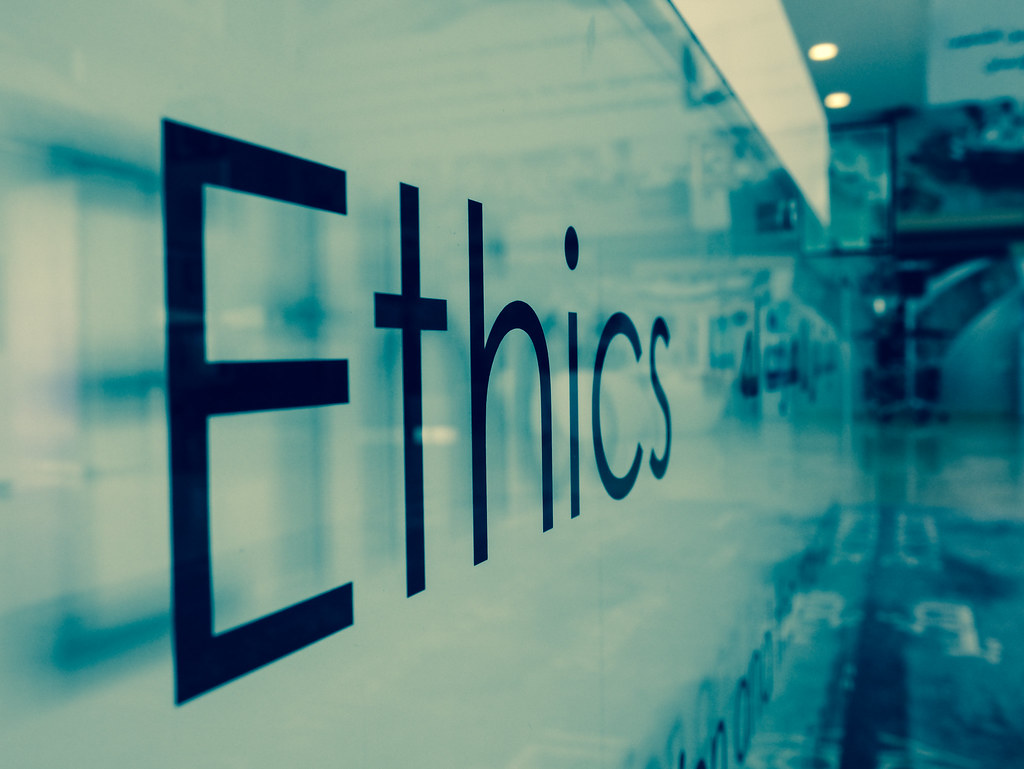Is it unethical for a high school journalist to join a protest while they are covering it for a news story for their student newspaper or broadcast?
History of Journalism Objectivity
For much of early American history, opinionated news coverage was the norm. It was not until the American Civil War that newspapers started to embrace the kind of objective reporting that has become common journalistic practice today.
In 1947, the Hutchins Commission, a board of scholars and intellectuals charged with examining the proper role of journalists in reporting on democracy, released a report that declared that the news media needed to adopt new ethical standards. This report led to the creation of the modern system of journalism ethics that we know today. Nowadays, most news organizations have ethical guidelines that require reporters to be neutral and detached from political activities that they are covering.
Modern Ethical Codes
The Society of Professional Journalists, the main ethical organization for journalists, says that journalists should not be politically involved in events that they are reporting on. However, SPJ does note this may be impossible in today’s “superheated political environment.”
In addition to SPJ’s guidelines, most national news organizations have policies or guidelines that specifically prohibit employees from engaging in protests that they are covering. For example, The New York Times has a policy that states that journalists “may not march or rally in support of public causes or movements.”
Essentially, these national news organizations have advanced five reasons for why they have prohibited their journalists from engaging in protests they are covering:
Such a policy limits indirect or direct biases;
Lowers the chance of conflicts of interest;
Promotes journalistic independence;
Creates an apolitical newsroom; and
Lowers the potential for foreseeable legal liabilities.
1. Limiting Indirect or Direct Biases
Even though a journalist may be able to prevent their biases from directly influencing their reporting, there are many ways their biases may indirectly impact their reporting. For example, a journalist who covers a protest may be more likely to portray that specific protest in a positive light but portray a counter protest less favorably. This can become a big issue when there are protests that are directly opposing one another, like a Black Lives Matter protest vs. a Blue Lives Matter protest.
2. Lowering the chance of conflicts of interest
When a journalist participates in a protest, they could develop sources that are tied to their involvement in the protest. This kind of relationship could cause the journalist to portray their source in a more positive light. For example, the journalist may choose to report that the protestors were attacked by police, but fail to report that the protestors had caused this attack because they had attacked the police first.
3. Promoting journalistic independence
Since journalists are focused on being reliable sources of information, they must strive to have no conflicts of interest. In other words, journalists should try to avoid getting too close to certain sources, like politicians or government officials, who may negatively influence their ability to neutrally report the news. If a journalist engages in a protest that they are covering, the journalist loses some of their independence because they may be influenced by an organizer to tell a different story.
4. Creating an apolitical newsroom
An apolitical newsroom is a newsroom where the journalists have no interest or involvement in political affairs. Thus, newsrooms prohibit their journalists from engaging in protests because doing so helps ensure the journalists do not have a stake in the outcome of a political event.
5. Limiting legal liability
There is a legal concept called respondeat superior, which is a fancy way of saying that an employer is legally responsible for any civil wrongdoings that an employee commits while performing an activity relating to their job. If a news organization allows their journalists to protest while performing their job, this decision could open up the organization’s supervisors to legal liability. For example, a court could force a news organization to pay an individual who was hit by a reporter’s protest sign. However, this legal principle does not extend to students.
In conclusion, a student journalist should not participate in a protest that they are covering for a news story for the following reasons: 1) such a policy limits indirect or direct biases; 2) it lowers the chance of conflicts of interest; 3) it promotes journalistic independence; 4) it creates an apolitical newsroom; and 5) it lowers the potential for foreseeable legal liabilities. If you are questioning whether you are in violation of your journalistic ethics, it would be best to err on the side of caution.
Have questions about free speech rights?
Send your questions our way, and we'll have our team find you an answer. Keep in mind, we’re not actually your lawyers and aren’t representing you. We can definitely help clear some things up and give you some info, but if you need actual legal help for your situation, you should find a lawyer in your area. And don't worry, any information we collect is only for our own research, and we won’t share it or sell it to anyone.




